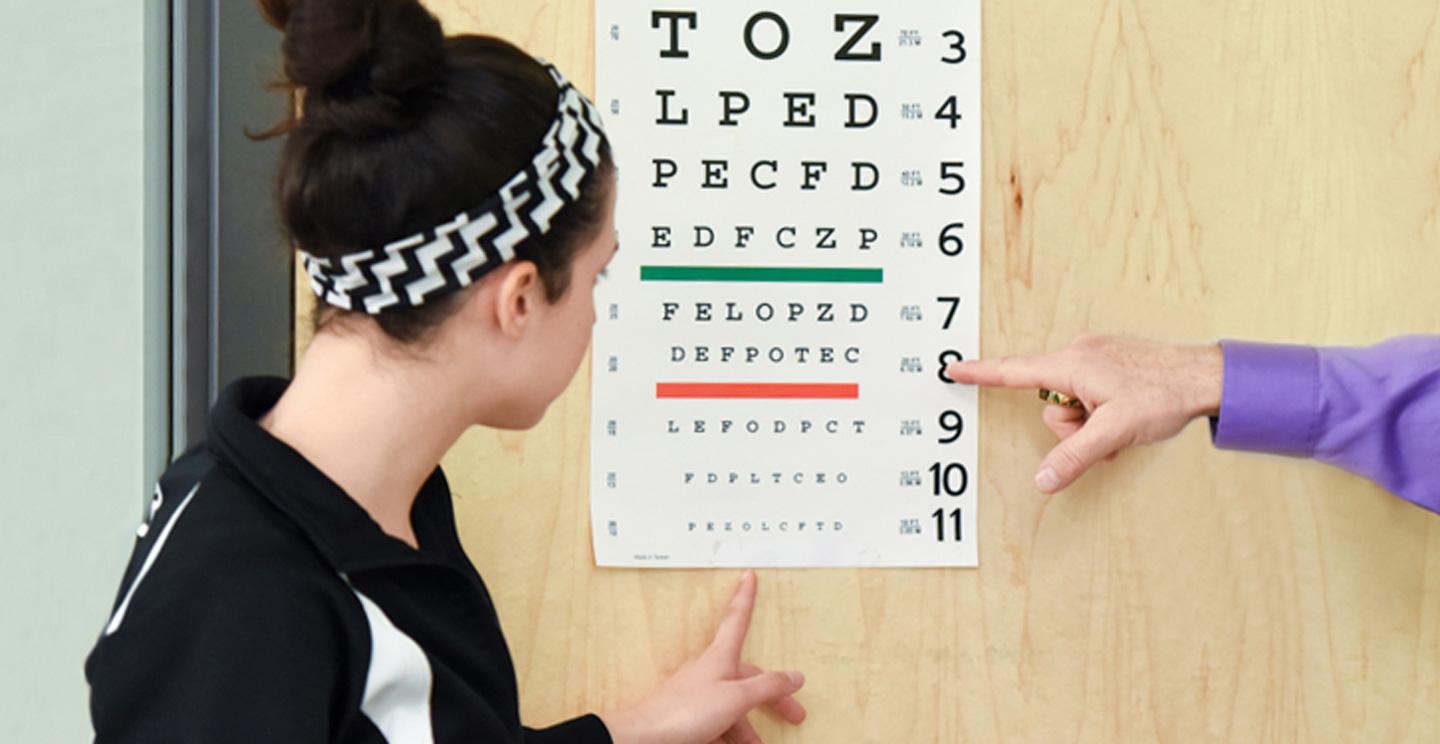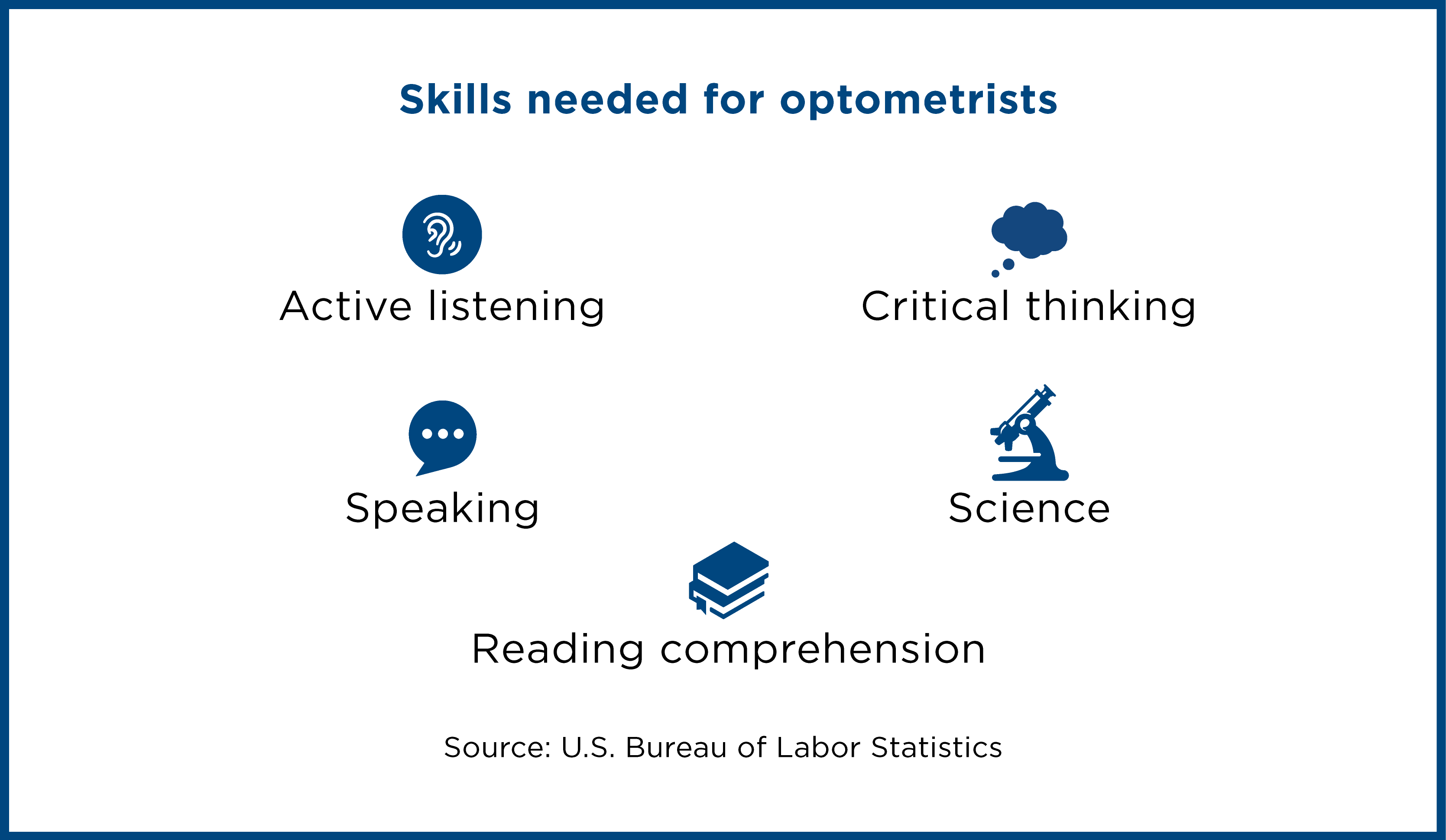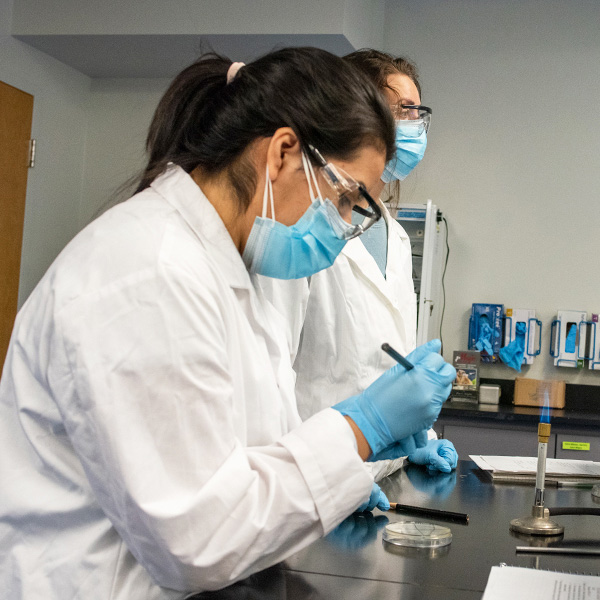Optometry (Pre)

Why study Pre-Optometry?
Optometrists are considered the frontline of eye and vision care. They diagnose and treat visual problems and manage diseases, injuries, and other disorders of the eye. They prescribe eyeglasses and contact lenses. Optometrists can choose to work in private practice, at a hospital, at an outpatient facility, or in the military.
As a Pre-Optometry student at Aurora University, you will major in Health Science, acquiring the knowledge and skills necessary to be successful in the ever-changing field of health care. You will also enroll in the Pre-Optometry program, which offers a curated collection of prerequisite courses necessary to be accepted into a graduate optometry program.
To help you navigate your academic career and prepare for optometry school, AU offers one-on-one guidance with our own Pre-Medical Professions Advisor C.J. Chen. A longtime biology professor at AU, Chen is an expert in the application process for health profession schools. Advanced coursework prepares you for the Optometry Admission Test (OAT) examination and the optometry school application process. Internship opportunities are also available so you can experience firsthand what it is like to practice optometry.
At AU, you will also have an opportunity to participate in research, a step that will enhance your optometry school application. AU offers students unique opportunities to conduct laboratory research with expert faculty in the field. Developing research experience deepens your understanding of what you learn in the classroom and prepares you with the skills to succeed in optometry school.
After you earn your undergraduate degree, you need to attend optometry school for four years to earn your Doctor of Optometry. You then take the National Board of Examiners in Optometry test to get your license. Some states have additional licensing requirements.
Qualified Pre-Optometry students can benefit from AU’s agreements with Illinois College of Optometry and Midwestern University. Please visit our academic affiliations page to learn more.
- Anatomy and Physiology I
- Anatomy and Physiology II
- Biochemistry
- Calculus
- General Biology I
- General Biology II
- General Chemistry I
- General Chemistry II
- Microbiology
- Organic Chemistry I
- Physics I
- Physics II
- Psychology
- Statistics
- AU Science Organization
- Aurora University HOSA - Future Health Professionals
- Mu Sigma Pi Pre-Health Service Club
2023 annual median salary for optometrists
2022-2032 projected job growth rate


Experiential learning
You will have the opportunity to complete an internship, clinical, or field experience at an optometrist office. AU’s pre-medical professions advisor will work with you to find internships in the optometry field that fit with your interests so you can experience your targeted profession first hand. You will also have the unique opportunity to conduct laboratory research with faculty, preparing you with the skills to succeed in optometry school.
Internship sites
- Pearle Vision
Where AU graduates attend optometry school
- Midwestern University
- Illinois College of Optometry
- Southern College of Optometry